Endgame was supposed to be the culmination of 11 years of MCU. Well. I’ve already complained about how the time-travel mess makes no sense. When it’s the central plot device, it is more than a little irritating that the Russos didn’t take proper care with it. But still, on some level this is nitpicking, in the sense that logical consistency is not what a good film makes. Newton’s first law is ignored about five minutes into Endgame and it didn’t ruin my pleasure from the film either, only added a little frustration. (Because why?) But when characters are done well, many sins against logic or laws of physics can be forgiven.
Are they, though? Well, that’s precisely the question.
So let me look at what happens to characters in Endgame in the context of their development over the last ten years of MCU. Let us see whether it works or not.
Warning: This article contains massive spoilers for all the MCU films, including Endgame.
Tony Stark
I will start with Tony, because he was with us the longest, and he is definitely one of the two main characters.
His arc in Phase 1 (for Tony, that means Iron Man 1 and 2 and The Avengers) is quite clear. He goes from a selfish asshole who only cares about himself to caring about the consequences of his actions, about his friends, and then finally about everyone, culminating in his sacrifice at the end of The Avengers.
Phase 2 (Iron Man 3 and Age of Ultron) is clear-cut enough as well. It is his traumatic response to the events of Phase 1, which warps his good intentions to something that brings him very close to becoming a villain.
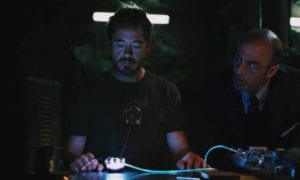
Now Phase 3 is where it gets difficult. At the end of Age of Ultron, we see him take a step away from the Avengers, a very logical conclusion of the Phase 2 storyline for him. But in Civil War, he is kind of back. Civil War is a sensible response of the world to the recent events, and following Watsonian logic Tony would definitely get involved. But when it comes to Tony’s character development, it kinda makes no sense. It is his attempt to right his previous mistakes with the Accords, but it doesn’t follow his step away form superheroing at all. The tear in the team, too, is rather less intensely felt when we take into account that he hasn’t been on the team for a year when the Civil War starts.
How jarring this is for his character arc becomes even more obvious when Infinity War clearly picks up where Age of Ultron left, with Tony being done with superheroing and promising Pepper “no more surprises”. Obviously the surprise comes anyway, and we can see Tony’s reluctance clearly, but also that he knows he really cannot sit this one out because this is what he’s been afraid of since 2012.
In Endgame, he manages to survive and get back to Earth, and immediately takes the chance to get his quiet family life he wanted. So far, so good.
Then, five years later, the Avengers come to him for help, and we get to see him retread old ground with leaving family behind like in Infinity War and sacrificing himself like in The Avengers. There was even the emphasis on losing Pepper there already. The only added thing in Endgame is his daughter, to make it cheesy and cheap, because who doesn’t love giving a character a family only for the express purpose of taking it away?
So, no. As a culmination of Tony’s arc, it didn’t work, because his arc culminated in this way already in 2012 and then moved in a different direction.
His arc culminated with him having a family. That was the logical conclusion.
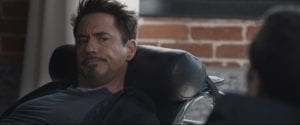
In light of this, there is one thing that would have worked perfectly as a confirmation and strengthening of that. Imagine if when the Avengers came to him, he sat down to invent time travel, brought them the method… And then didn’t go with them.
Because you don’t actually need the inventor to go along with the adventure. And yes, I understand he felt morally obligated to try to save all the snapped people. But there was no moral obligation for him to be personally involved when he had a young child. In fact, it would have been the perfect culmination of his story: finally realizing the balance of responsibility and self-flagellation, learning to take a step back. Understanding he doesn’t have to do everything himself. Controlling his control freak impulses. It would have been the final end to his character growth.
He could have easily taken part in the fight when Thanos crashed through time to 2023, because that was different, he was fighting to save what was his. And if they really insisted, he could have died doing that, too. Though I would have much preferred a version when he finally retires, his nightmare of the last twelve years finally put to rest. Because sacrifice, well, that we’ve already seen from him. But we’ve never seen peace.
Steve Rogers
Captain America is tricky in this because he doesn’t really do character growth. His shtick is mostly staying constant and unchanging in contrast to the massively changing circumstances around him. So he doesn’t truly have a character arc to speak of.
What he has is that one, long-sanding characteristic: being firm in his principles, and being willing to sacrifice both himself and everything (and also everyone, if necessary) else for them.
This firm rule gets broken only once, when he doesn’t tell Tony about Bucky killing his parents. This alone shows better than anything else how hugely important Bucky is for him. He is the only reason Steve would ever bend his rigid moral code.
And then suddenly there is Endgame.
In Endgame, Steve ignores the rule that prevented Thor form saving his mother from dying because he wants to get back with the girl he liked eleven (from his point of view) years ago.
Peggy had a husband and family in the time he was gone. Does Steve care he would be taking them from her? Does he wonder if she was maybe happier with this family than she would be with him? No. He only cares about him getting “his girl”—a girl he barely knew.
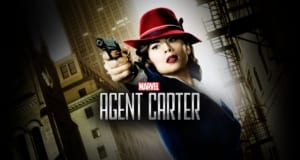
This is peak male entitlement. He doesn’t care about her, and he doesn’t care about the changes he would be making to the timeline. All the people he would be erasing. Nothing. It also shows that he never actually managed to deal with his time displacement, was hung up on the past in his head, and in the end, he could only return to it.
This is not like Tony’s story, where the Endgame ending simply didn’t add anything to it and just retreaded his footsteps. This actually does work…in a very horrifying way.
I am quite sure this is not what the Russos intended, but the reverse honeypot here is clear. It fits too well with Steve’s previous relative disregard for collateral damage in Civil War. The way his character is supposed to be read, he disregards it because such things cannot divert us from what is objectively morally right. I might not like such an approach, but I at least recognize there is some backbone needed for it.
The picture painted by the end of Endgame, however, is this: Steve, who never managed to deal with the trauma of his time displacement, became entitled, feeling that the world owed him for his sacrifice. He never cared about the causalities simply because he sacrificed his life, so why shouldn’t anyone else? Steve snatched what he wanted – his best friend, his girlfriend – completely disregarding the damage it did to the people around him. He was so convinced he was right in everything that he decided the rules did not apply to him.
Ultimately, Endgame offered validation to the way Steve haters have always interpreted him.
There is also the fact that after Civil War took such care to depict Bucky as the one person Steve breaks all the rules for, not only does he abandon him for Peggy at the end of Endgame, we barely see them speak a word to each other. This is just…absurd.
Endgame ignores any character beats Steve Rogers had before it, and the only way to make his characterization work is to make him essentially a bad guy through and through.
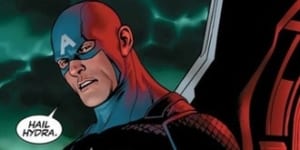
Do I think he should have died instead? No. As with Tony, we’ve already seen him heroically sacrifice his life at the end of a film before, this time his very first film, because he didn’t need to grow to get to this point. The only way his death wouldn’t have been treading over old ground would have been if he sacrificed himself for Tony, as a reversal of what happened in Civil War, or for Bucky, as a confirmation of it. But I do not particularly believe Tony or Bucky need the guilt and it is not a necessary step for Steve either.
What I do think would have been a fitting end to his storyline, on the other hand, would be him finally having a proper conversation with Bucky again. Bucky, who had some time to think over what happened in Civil War. Bucky could remind him that he can’t just throw everything away for him, can’t stop being himself. And Bucky could also remind him that they live in the 21st century now and have to find their life here, not dwell on the past.
Steve could realize Bucky was right. That could be the reason he gives Sam the shield and the role. He comes to the realization that for him, Captain America is an anchor to the past. That he needs to find something for himself in the 21st century. He needs to find out who he is now. Ironically, this would be where his character arc would start.
Thor
After the main duo, Thor is supposed to be the third most important character in the MCU. However, you wouldn’t know it looking at the ‘care’ given to his character.
I have complained at length about his consistent lack of reaction to his traumatic experience, so I will try not to retread old ground. Let us simply look over the development he gets.
Thor 1 is clear enough. He goes from a selfish, arrogant jerk to a guy begging for forgiveness of his mistakes and offering his life to save his friends. I’m salty about this because he makes these huge leaps of character development in three days, but he develops all right.
In The Avengers, this goes away to a degree. He’d witnessed his brother commit suicide at the end of Thor, and when he finds him conquering Earth a year later, the first thing he says to him is “where is the Tesseract”. It’s even lampshaded. Loki laughs bitterly and replies “I missed you too”. Now obviously Loki is a danger at this point and needs to be dealt with, but he was also presumed dead for a year after trying to kill himself, so you’d think the new Thor person would perhaps tend to ask what happened first. But no.
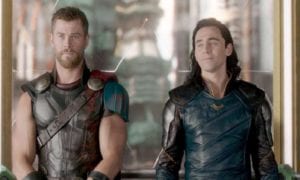
However, this conversation is also pretty much the only insight we have into Thor’s personality in The Avengers (except for that ho so hilarious line of “he’s adopted”), and it’s all related to Loki. So while it feels like resetting much of Thor’s character development, he also does have very legitimate reasons to be upset with Loki. It’s not necessarily a complete erasure of what happened before. We can still imagine he would have been all compassionate if he hadn’t found Loki in the middle of a world-domination project.
Then we come to The Dark World, where Thor is confronted with the darker side of kingship. It is not done particularly well, but it was clearly the intention behind the story. Seeing this, seeing beyond the glory he saw in the throne in Thor 1, he rejects the position. He decides to live the life of heroism and love on Earth instead.
In Age of Ultron Thor mostly just reacts and does a trailer for Infinity War, but then we get to Ragnarok.
In Ragnarok he is…very chipper. It’s a bit of a tonal whiplash form his last film, or even from Age of Ultron. There is enough time between the events of this, so it is not that it would be impossible. But we have to kind of wonder by what kind of mysterious off-screen development did he get there. Especially as we find out that Jane, the reason he went to Earth for at the end of The Dark World, broke up with him. Is that why he is so happy? Or is that simply him repressing all the losses he’d suffered so far?
Whatever the reason, he mostly stays chipper through the whole film, but we do get his first properly done character development in his realization of his responsibility towards his people and his acceptance of kingship.
Infinity War mostly just ignores his trauma, but we can say he is repressing again. It really is quite is character for him. Thor doesn’t strike me as somebody who would be very in touch with his feelings. Especially the softer, sadder feelings. Anger and happiness he probably manages just fine.
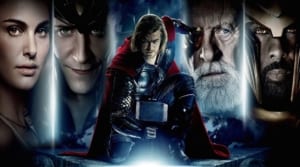
Anyway, then there is Endgame. It had the potential to be so perfect.
They took the repression and brought it to its logical conclusion. They allowed it to become obvious. Thor’s little bachelor existence is one long manifest of denial. His repression progressed to the point where it was clearly entirely pathological. It is exactly how he would have reacted, it is so perfect I am astonished.
And then it was turned into one big joke.
I will never understand why that seems like a god idea. Never. It is like the after-credits scene in Iron Man 3 all over again. For the last time, Marvel, trauma is not a joke.
Instead of laughing at him, these supposed friends of Thor’s should have been terribly alarmed and should have done their best to help him through it. We should have had a scene of Thor breaking through his repression and having a good, long cry and rant and rage, and then being able to gradually move on.
His mother does this for him instead, though we don’t see half as much emotional reaction from him as we should at the breaking of his repression. Men don’t try, I suppose. But the even bigger problem is what follows. After this happened, Thor should have proceeded to fight, help in killing Thanos, and then returned to the care of his people, in line with his character development from Ragnarok.
Or, alternatively, we should have seen why it couldn’t happen. That he is still coming to terms with his trauma and he saw too many Asgardians die under his leadership to be able to be a good king for now. That he needs to take a time away, and need to make someone else the interim rules. That would be entirely plausible.
Instead he rejects the job completely, thus retreading the ground from The Dark World. He also just dumps it on the nearest available person. I love Valkyrie to bits, but she hasn’t shown talent at anything beside fighting and drinking so far. Why the hell should she be a good queen? But it doesn’t matter, because Thor goes off to have a bro trip.
What a culmination to his decade long story!
Bruce Banner
Don’t even get me started on Bruce Banner.
Technically, Bruce is the fourth and last member of the original Avengers who had his own solo film. But it became obvious soon enough that Marvel didn’t mean to give him any attention. There were never any real plans to make another solo film in spite of how great Ruffalo was in the role in Avengers 1. No one except Whedon ever actually bothered to film him as anything but comic relief.
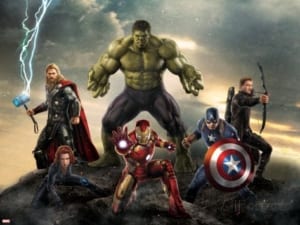
Endgame still takes the cake, though.
Because becoming Professor Hulk, ending the struggle between the two sides of his personality, should have been the culmination of his character arc. And they did it off-screen.
This is much worse than Valkyrie becoming a capable queen off-screen, or even than Thor becoming so chipper off-screen. It is like if they had Tony become Iron Man off-screen. This is a huge character development that should have been deeply significant.
This is unforgivable.
Natasha Romanoff
Natasha is actually the only character who I felt got a fitting ending to her arc.
This feels gross to write, given that she died. And don’t get me wrong, it absolutely is gross that while the three white guys above could survive their heroic sacrifices, she not only had to die, but die in a way that is completely irreversible.
But at least it was as culmination of her own arc, and not someone else’s, like Gamora.
We first meet Natasha when she manipulates Tony as part of Fury’s plan. That’s her starting position: a ruthless spy who gets the job done. Then in The Avengers we see she has a strong friendship with Clint, whom she owes for bringing her to SHIELD instead of killing her. We also seen her kind of insecure when facing a threat above anything she can handle.
In Winter Soldier we see her forming a friendship with Steve, and reacting to the realization that everything she’s fought for is false. In Age of Ultron, she opens herself up to the team even more, manifested by trying to pursue a relationship with Bruce. We also get to explore her self-hatred and belief she is a monster. That ultimately manifests in that cold pragmatism she shows when she pushes Bruce down the shaft to get the Hulk to help them fight Ultron. Natasha might hate her ruthless tendencies and wish she was capable of actually having friends. But when it comes down to it, she will always do what is necessary.
Next she is in Civil War, where she is on the fence about which team to join in a purely pragmatic manner. At first she believes Tony’s side offers a better chance of survival, but when she sees Steve is beyond being reasoned with, she joins him instead and goes incognito.

Then in Endgame, she is heartbroken over having lost the superhero team, her only family, everything she ever had.
As with Tony, the Civil War is the jarring moment in her arc. It is where it seems she decided to turn back to sheer pragmatism after the choice she made in Age of Ultron, only for this direction to be then ignored by the later films.
But ignoring Civil War, her arc is a gradual development from a ruthless spy with little compassion to a friend. Her sacrifice to save her found family, and to save Clint, is the perfect ending to this story. All of her masks as a spy are gone, and it’s just her giving her life for who she loves.
But yes, the gender implications are gross.
Clint Barton
In The Avengers, Clint Barton’s entirely personality was effectively ‘angry at Loki’. We only properly see his personality in Age of Ultron, where he seems to be a family man. That, however, goes away in Civil War, where is is kind of an asshole (closer to his comics personality) and doesn’t give much of a shit about his family. Certainly not enough to not turn against the government when they try to register superheroes. Even though, having retired from superheroing, it doesn’t actually concern him in any way any more. It just seems Civil War was a mess for characterization all around.
In Endgame, it is back to being a family man for the first five minutes. Then they die. We get two random scenes with Clint being Ronin which are completely self-indulgent, pointless and unnecessary. They don’t even properly work to show his trauma, because it is not like he is getting revenge. His reasoning for becoming Ronin is convoluted and unbelievable because he has one sentence to summarize it in. Much like with Professor Hulk, if they wanted to do this, they should have saved it for a separate film. This was simply a completely wasted potential.
Then when Clint rejoins the team, the first thing he does is being willing to sacrifice himself for Natasha.
Come on.
I get that they are friends, I get that he feels guilty for killing as Ronin, but… What about his whole family man persona?
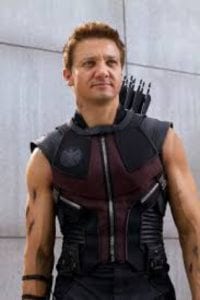
I can much more easily imagine a scene where he cries as he tells Natasha that he is so sorry but that he can’t give up the chance to see Laura and the children again, not like this, and she tells him that it is all right and to say hello to them for her. Where she tells him that this is why she is doing this, so that he could be with his family again.
It would have actually been a sacrifice, then, instead of a result of a fight. It would have had the same kind of gravity as Thanos killing Gamora. One person willingly agreeing to give up the other. Only this time, the sacrifice agrees as well.
What we got was a stupid wrestle on the top of the cliff that turned it more into an accident. I was reminded of Frodo and Glum atop Mt. Doom, actually, and my very similar irritation with that film. What kind of culmination for Clint was that?
The sidekicks
Endgame was chiefly focused on the original six Avengers, but there were some minor characters who got rather important development as well.
It was nice to see Pepper say that trying to get Tony stop being Iron Man was one of the few mistakes she has ever made. It would have been even nicer if there were some traces of this realization in Infinity War already. Because did she come to this realization only in the five year interim? How? It’s after Tony has stopped. Instead, I would have liked to see this as a preclude to them ever getting back together after Civil War. But better late than never, I suppose?
Nebula and Gamora both got decent space for character development, if we accept that Gamora was already decided against Thanos. That is what Guardians of the Galaxy implied, after all. And it was nice seeing Nebula being the one who is further on her road to redemption for once. The contrast between her old and new self worked well, too. It is a pity the moment of her killing her old self was so wasted.
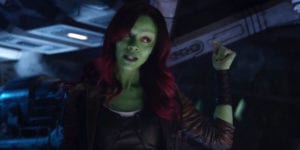
Speaking of the Guardians, Rocket grew into his role beautifully. Quill, on the other hand, seemed to have mostly regressed to his pre-Guardians of the Galaxy 1 self. With the addition of being sad about Gamora, I suppose. But his dick measuring contest with Thor is still more important, so.
On the Asgardian side, I have already complained about Valkyrie’s development into a good queen happening off-screen. I was also hoping for something from Loki, but I suppose I will have to wait for the TV show for that.
Dr. Strange didn’t get any development as such. But given his history of being an asshole, I feel one thing is worth being pointed out. In light of what happened, his way of telling Tony they were in the endgame was kind of gross. I understand that Tony’s sacrifice was necessary with the way it was written. But Strange should have been shown as seeing the tragedy of the thing, not as feeling all smug that he knew the final answer. And that is leaving aside that, having infinite time, Strange could have continued searching for a scenario that didn’t demand such convulted time travel and so many sacrifices. I can think of about ten off the top of my head. I am sure if he had tried, he would have found some other options.
But the most important ‘development’ of a side character in Endgame was Sam’s. Because Sam Wilson got Captain America’s shield as a result of…what?
This moment should not only have been important in Steve’s character development, but in Sam’s as well. From hsi side, however, there was nothing. Absolutely nothing. It was the first conversation Steve and Sam have in the film. In fact, these were probably the first lines Sam has at all. Once again, such a wasted potential. That moment should have grown from something for Sam.
All in all, there was a lot of wasted potential, crucial developments were hurried, and much old ground was retreaded. Plus, with Steve, there was one complete character assassination. End the one arc that did actually work had too many unfortunate implications to count.
Not cool, Russos. Not cool at all.

